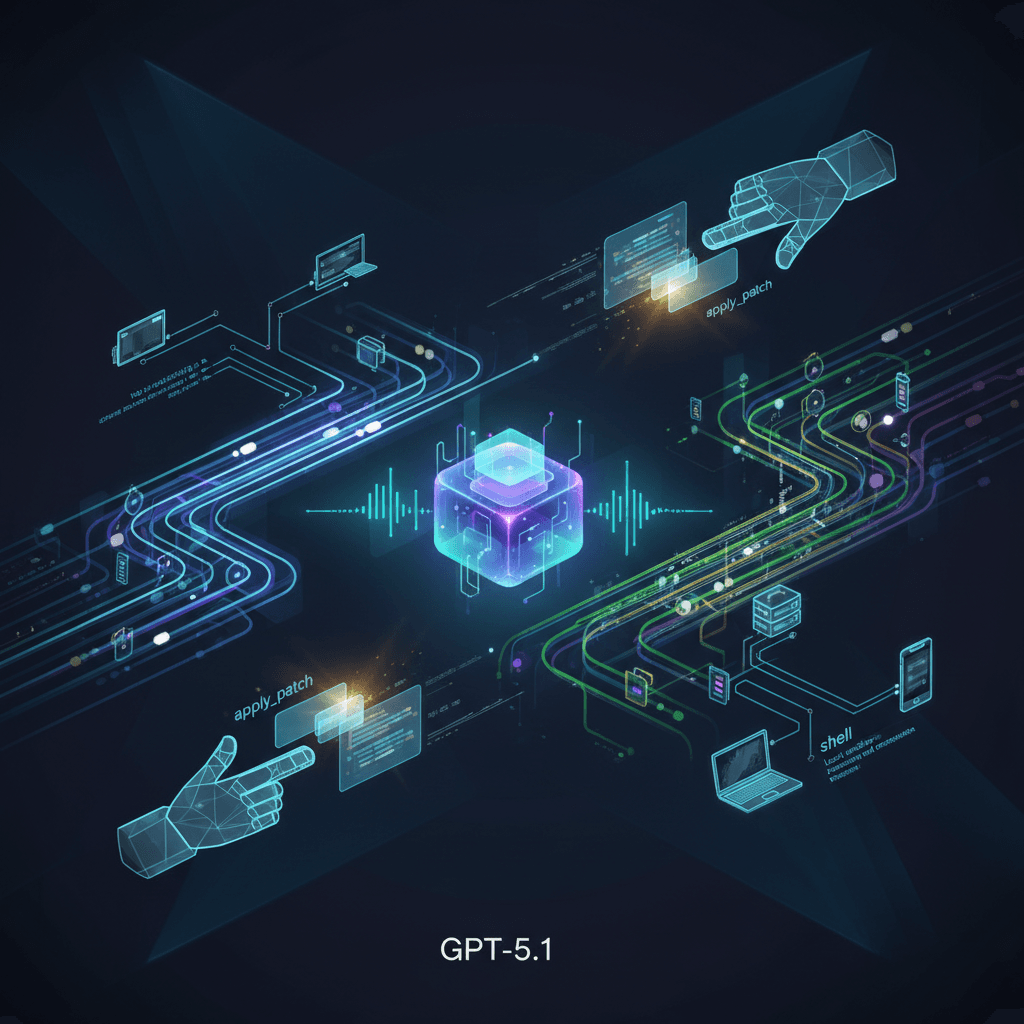OpenAI Launches GPT-5.1, Supercharging Developer Coding and AI Efficiency
Efficiency meets innovation: GPT-5.1 refines AI with adaptive reasoning and powerful developer tools at no extra cost.
November 13, 2025

OpenAI has released GPT-5.1, the latest iteration of its flagship large language model, making it available to developers through its API.[1][2][3] This incremental update, arriving as a refinement of the GPT-5 architecture, introduces significant enhancements in efficiency, new features aimed at developers, and marked improvements in its coding capabilities, all while maintaining the same pricing structure as its predecessor.[4][2] The release signals a strategic focus on usability and performance, balancing frontier intelligence with the practical demands of speed and cost-effectiveness for a wide range of applications.[1]
A central pillar of the GPT-5.1 launch is its overhauled approach to reasoning and efficiency.[1] The model introduces a feature called adaptive reasoning, which allows it to dynamically adjust the computational effort, or "thinking time," based on the complexity of the task at hand.[1][5][6] For straightforward queries, GPT-5.1 uses fewer tokens and responds more quickly, leading to a snappier user experience and lower costs for developers.[1] On more complex problems, the model remains persistent, dedicating more resources to explore potential solutions and check its work to ensure reliability.[1] This dynamic allocation of effort addresses a key challenge in large language models: balancing performance on simple tasks with thoroughness on difficult ones. Further enhancing its efficiency, OpenAI has introduced a "no reasoning" mode, which can be activated by developers for latency-sensitive applications that do not require deep thought, while still benefiting from the model's high intelligence.[1][2] To complement these speed improvements, extended prompt caching has been implemented, retaining caches for up to 24 hours to deliver faster, more cost-effective responses for follow-up queries.[1][2]
For the software development community, GPT-5.1 brings a suite of targeted improvements and new tools designed to create a more intuitive and powerful coding assistant. The model demonstrates superior performance on coding benchmarks, achieving a score of 76.3% on SWE-bench Verified, an improvement over GPT-5.[1][2] OpenAI states that it has refined the model's "coding personality" to be more steerable and to produce higher-quality code with less overthinking.[1] A significant addition for developers is the `apply_patch` tool, a new feature in the API that allows the model to make code edits more reliably without the need for JSON escaping.[1] Another powerful new feature is a `shell` tool, which grants the model the ability to write and execute commands on the user's local machine, opening up new possibilities for agentic workflows and automation.[1] In addition to the main GPT-5.1 model, OpenAI has also released specialized `codex` versions, `gpt-5.1-codex` and `gpt-5.1-codex-mini`, which are specifically optimized for long-running, agent-based coding tasks.[1][2]
The release of GPT-5.1 is not just a technical upgrade but also a strategic move within the competitive AI landscape. By designating it a ".1" version, OpenAI signals an iterative improvement focused on refining the user and developer experience rather than a fundamental research leap.[5] This approach appears to be a direct response to feedback on GPT-5, aiming to improve aspects like conversational tone and usability.[5][7] The decision to keep the API pricing the same as GPT-5 is a significant factor for market adoption, making the enhanced speed, efficiency, and new capabilities accessible to all paid-tier developers without an increased financial barrier.[1][4][2] The introduction of distinct model variants, such as "Instant" and "Thinking" for different use cases in the broader ChatGPT product, reflects a maturation of the technology, offering more tailored solutions for specific needs.[5][8][9] This strategy allows OpenAI to cater to a wider array of applications, from fast, conversational agents to powerful, deliberative systems for complex problem-solving.
In conclusion, the launch of the GPT-5.1 API represents a significant step forward in making advanced AI more practical and powerful for developers. By focusing on adaptive reasoning, enhanced coding functionalities, and the introduction of novel tools like `apply_patch` and `shell`, OpenAI has delivered a more efficient, versatile, and user-friendly model. The commitment to maintaining the existing pricing structure further lowers the barrier to entry for developers looking to leverage these state-of-the-art capabilities. As the AI industry continues to evolve, the emphasis on iterative refinement, efficiency, and developer-centric features seen in GPT-5.1 will likely play a crucial role in shaping the next generation of intelligent applications.
Sources
[1]
[3]
[4]
[5]
[8]
[9]